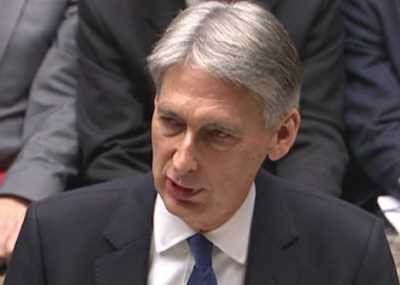Autumn Statement 23 November 2016
Published / Last Updated on 23/11/2016

Autumn Statement 23 November 2016.
Summary: A fairly limited, as expected, general Autumn Statement with no major changes in policy, save a reduction on forecasts in light of Brexit.
Economic Growth Forecasts
- 2016 - 2.1%
- 2017 - 1.4%
- 2018 - 1.7%
- 2019 - 2.1%
- 2020 - 2.1%
Public Sector Borrowing Forecasts
- 2016/17 - £68.2bn
- 2017/18 - £59.0bn where Government expects total debt as a % of GDP to peak at 90.2%.
- 2018/19 - £46.5bn
- 2019/20 - £21.9bn
- 2020/21 - £20.7bn
- 2021/22 - £17.2bn
No longer targeting a surplus by 2019-20 as we expect to remain in deficit amid economic uncertainty. Government still expects to balance the books in the next Parliament 2022/23 target.
Austerity remains and we will maintain a cap on welfare/benefits spending.
National Productivity Innovation Fund
£23bn over next five years. Per head, Germany, France and Italy are more productive than UK. We work longer hours for lower pay. Government wants us to be more productive and innovative.
Digital Infrastructure and Other Infrastructure
£1bn fund to develop further fibre optic broadband as well as be leaders of the next generation of 5G mobile broadband/data.
General infrastructure investment including road and rail investment to between 1% and 1.2% of GDP per year by 2020.
Local Growth Funds in England of £1.8bn plus £0.8bn for Scotland, £0.5bn for Wales and £0.4bn for Northern Ireland.
A Housing White Paper on a Housing Infrastructure Fund, to develop affordable housing projects as well as Right to Buy schemes from Housing Associations.
Armed forces and Emergency services charities to continue to receive funds from banking fines, with an additional £102m allocated.
2,500 additional prison officers.
Landlords
Government to regulate and ban Letting agent fees paid by tenants. If a landlord wants a managing agent, landlords must pay for all their costs.
Taxation
Corporation tax to fall to 17% as planned by 2020. Currently 20% and falling to 19% 1 April 2017, 2018 and 2019. 18% for the Financial Year beginning 1 April 2020 with non-ring fenced profits at 17% from the same date.
Commitment still to increase tax free personal allowance to £11,500 in April 2017 and eventually to £12,500 and also move higher rate tax band up to £50,000.
June 2017 - Insurance premium tax increase to 12% from 10%
Many at works benefits in kind including salary sacrifice schemes will now face full tax and social security with the exception of certain benefits in kind such as child care, pension contributions and cycle to work schemes.
Measures to ensure international companies cannot borrow in UK, creating higher expenses and losses meaning lower/nil corporation tax in the UK and invest that money to develop overseas projects.
Business rates to remain low/subsidised to the tune of £6.7bn support for smaller business and rural communities.
Pensions and Income
Flexible Drawdown. If you have taken flexible pension drawdown benefits from a pension, the maximum you will then be allowed to pay into new money purchase/investment linked pensions will be reduced from £10,000pa to £4,000 pa.
State pension triple lock – from the Chancellors use of words, this appears to remain for the time being.
National Living Wage to increase to £7.50 per hour from April 2017.
Universal Credit Taper Reduction
Currently universal is reduced by 65p for every £1 earned will now be reduced to 63p for every £1 earned, meaning you keep more universal credit i.e. the taper is less.
Savings
National Savings and Investments (NS&I) will next year launch a new Investors Bond with an anticipated rate of 2.2% pa with a maximum investment of £3,000 per person.
Budget Day Change
Main budget will be in Autumn 2018 and a Spring Statement in March. A reversal of the current practice. Why? So that government can announce full budget measures in the Autumn to take effect in the following April rather than what happens now is most decisions are made in March and not take place for another year or so in April the year after as it is too short to enact changes in April when a Budget was a few weeks earlier.
Why do we think this has happened? It is about timing of the Brexit negotiations and changes. If we trigger Article 50 at the end of March 2017, we are committed to leave the EU by the end of March 2019. By having a full Budget in Autumn 2018, we will already know much of the Brexit strategy and where negotiations are taking the UK and can budget accordingly.